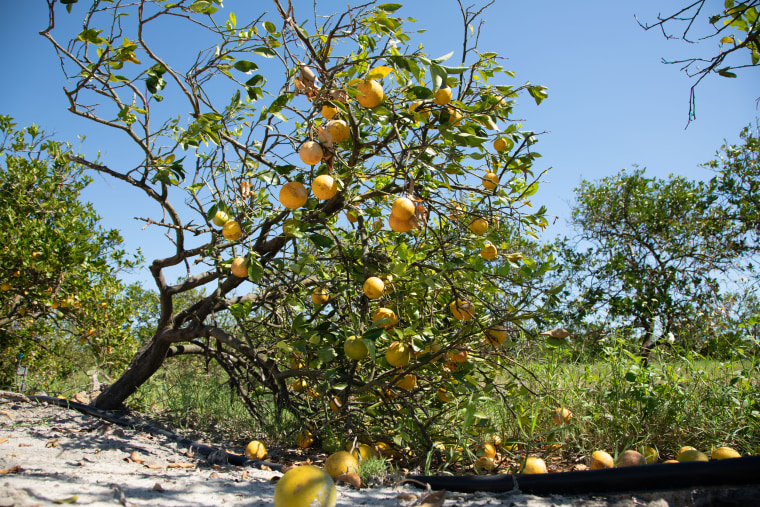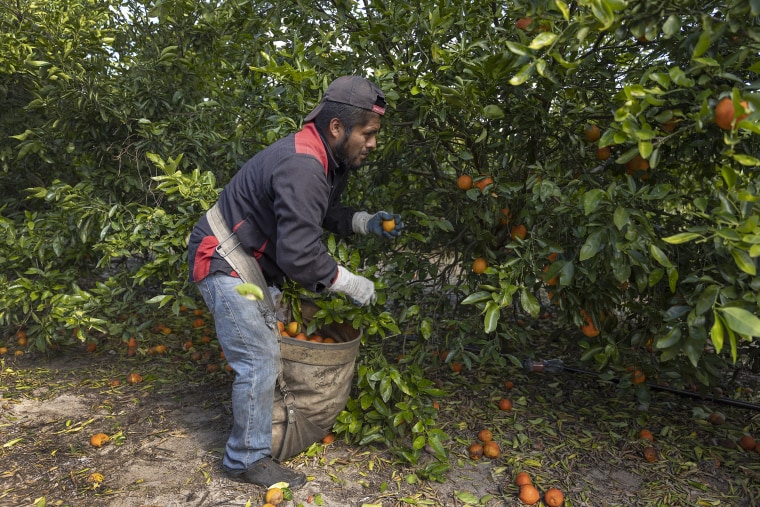Florida's orange crop production will likely plummet to record lows this season thanks to Hurricane Ian, the U.S. Department of Agriculture said Wednesday. That assessment compounds an already weak citrus production situation in the state.
The upshot: The price of orange juice, which has already climbed to an all-time high of $2.90 per 12-ounce can because of soaring food inflation, could go even higher.
The USDA's forecast said 28 million boxes of Florida oranges would be produced in the 2022-23 season. That would be the lowest output since 1943 and down 32% from last year's already low production of approximately 41 million boxes.
"We’re factoring in a very tight [crop production] situation here," said Jack Scoville, vice president at PRICE Futures Group in Chicago. "The cut was pretty extreme."

Florida oranges serve as the feedstock for most orange juice produced in the U.S. The number of Florida oranges available to be used for juice was already near record lows because of the onset of a so-called greening disease, which can cause trees to bear fruit that are smaller and lower in sugar. The outbreak has prompted some Florida farmers to advocate for the Food and Drug Administration to lower its sugar content standards for juice.
Scoville said that as domestic prices for orange juice rise, it will become cheaper for many wholesale buyers, like supermarkets, to begin importing juice-ready oranges from overseas.
He also predicted that more Americans will switch to Vitamin C supplements as the cost of orange juice begins to climb further.
Both of those factors could ultimately prevent orange juice prices from rising faster, he said.
But for now, the price will likely continue to head upward, he said.
"We were expecting a cut to production, but this is a very big cut," Scoville said. "So the market is reacting accordingly."

